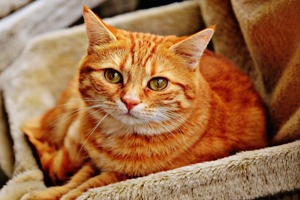1. 五年级上册英语点读免费,五年级上册英语好词好句?
1、Genius only means hard-working all one's life. (Mendeleyev Russian chemist)
天才只意味着终身不懈地努力。(俄国化学家 门捷列耶夫)
2、The man who has made up his mind to win will never say "impossible ". (Bonaparte Napoleon ,French emperor )
凡是决心取得胜利的人是从来不说"不可能的"。( 法国皇帝 拿破仑. B.)
3、There is no such thing as a great talent without great will - power. (Balzac)
没有伟大的意志力,便没有雄才大略。(巴尔扎克)
4、Cease to struggle and you cease to live.(Thomas Carlyle)
生命不止,奋斗不息。(卡莱尔)
5、A strong man will struggle with the storms of fate.(Thomas Addison)
强者能同命运的风暴抗争。(爱迪生)
6、Living without an aim is like sailing without a compass.(John Ruskin)
生活没有目标,犹如航海没有罗盘。(罗斯金)
7、Live a noble and honest life. Reviving past times in your old age will help you to enjoy your life again.
过一种高尚而诚实的生活。当你年老时回想起过去,你就能再一次享受人生。
8、Accept what was and what is, and you’ll have more positive energy to pursue what will be.
接受过去和现在的模样,才会有能量去追寻自己的未来。
9、Behind every successful man there's a lot u unsuccessful years. (Bob Brown)
每个成功者的后面都有很多不成功的岁月。(鲍博·布朗)
10、Enrich your life today,. yesterday is history.tomorrow is mystery.
充实今朝,昨日已成过去,明天充满神奇。

2. 五年级上册英语书是上几年级?
五年级上册英语书是上五年级的同学用的。
不论是一年级起点还是三年级起点,是几年级的英语书就对应上几年级。
目前英语教材版本很多,有北京版(一起)、北师大、重大版、闽教版、粤教版、冀教版(一起)、冀教版、鄂教版、湘教版、教科版、教科版EEC、接力版、科普版、辽师大版、清华版、人教版(新起点)、人教精通版、人教版PEP、湘鲁版、陕旅版、沪教版、川教版、外研版(一起)、外研版、牛津版、译林版等,根据当地学校选择
3. 五年级上册英语基础训练第七八九页答案?
44B isn't
45B but
CEABD
i like funny teachers
2my brother is clever and hardworking
4et me show
4. 五年级上第四单元英语主要讲了什么?
1. 第四单元主要讲了动物和自然环境。2. 这是因为在五年级上,学生需要学习更多关于动物和自然环境的知识,包括不同种类的动物、它们的特征和习性,以及它们在自然环境中的生存状况等。这些内容对于培养学生的观察力、分析能力和环保意识都非常重要。3. 此外,学生还会学习一些与动物和自然环境相关的词汇和句型,以及通过听、说、读、写等多种方式来提高他们的英语能力。同时,老师还会引导学生进行一些与动物和自然环境相关的活动和讨论,以加深他们对这些主题的理解和兴趣。通过这样的学习,学生不仅可以提高他们的英语水平,还可以增加他们对动物和自然环境的认识和关注。
5. 五年级上册英语单词怎样读?
五年级上册英语单词的读法可以通过以下几个步骤来进行:
1. 首先,注意每个单词的发音规则。英语中有一些常见的发音规则,比如元音字母的发音、辅音字母的发音等。熟悉这些规则可以帮助你正确地读出单词。
2. 其次,注意单词的重音。英语中的重音对于正确的发音非常重要。通过强调正确的音节,可以使单词的发音更加准确。
3. 第三,多听多读。通过听英语音频、跟读英语材料,可以提高对单词的听力和发音能力。同时,多读英语文章、练习口语,可以加深对单词的记忆和理解。
4. 最后,利用字典和在线资源。如果遇到不熟悉的单词,可以查阅字典或使用在线资源来获取正确的发音。这样可以避免发音错误并提高自己的发音水平。
总之,通过掌握发音规则、注意重音、多听多读和利用资源,可以帮助你正确地读出五年级上册英语单词。
6. day五年级上册英文作文?
My school day
I’m twelve years old now ,I study in class 1,grade 6 in our primary school。
We have four class in the morning,and three in the afternoon。
My favorite subject is Chinese,our teacher will give us a lively class every day。
And we can learn a lot of knowledge and cultures from our teacher .it’s really very interesting .(总计60多个单词,比较符合您的字数要求)
我的学校生活
我现在已经十二岁了,我在1班学习,在我小学6年级。
我们有四个在上午上课,下午三。
我最喜欢的科目是语文,我们的老师每天都会给我们一个生动的课堂。
我们可以从中学到很多老师的知识和文化。这真的很有趣。
7. 五年级上册英语单词有哪些?
英语五年级上册单词词汇表,拿走吧
Unit 1:
young 年轻的 funny 滑稽可笑的 tall 高的
strong 强壮的 kind 和蔼的、亲切的;
old 年老的 short矮的 thin 瘦的 Mr 先生
like 像、喜欢 strict 严格的 smart 聪明的
active 积极的、活跃的 quiet 安静的、文静的
very 很、非常 but 但是
Unit 2:
Monday 星期一 Tuesday 星期二 Wednesday 星期三
Thursday星期四 Friday 星期五 Saturday 星期六
Sunday 星期天 day 天 have 有、吃
on 在…..时候
do homework 做作业 watch TV 看电视 read books 读书
Unit 3:
eggplant 茄子 fish 鱼 green beans 青豆 tofu 豆腐
potato 土豆 tomato 西红柿 for 为 lunch 中餐
we 我们 tasty 好吃的 sweet 甜的 sour 酸的
fresh 新鲜的 salty 咸的 favourite 最喜欢的
they’re=they are 他们是 fruit 水果 grape 葡萄
Unit 4:
cook the meals 做饭 water the flowers 浇花
sweep the floor 扫地
clean the bedroom 打扫卧室 make the bed 铺床
set the table 摆饭桌
wash the clothes 洗衣服 do the dishes洗碗碟
use a computer 使用计算机
Unit 5:
curtain 窗帘 trash bin 垃圾箱 closet 壁橱
mirror 镜子 end table 床头柜 bedroom 卧室
kitchen 厨房 bathroom 卫生间 living room 客厅
in 在…里面 on 在…上面 under 在…下面
near 在..旁边 behind 在…后边 clothes 衣服
Unit 6:
river 河流 flower 花 grass 草 lake 湖泊
forest 森林 path 路 park 公园 picture 照片
house 房子 bridge 桥 tree 树 road 公路
building 建筑物 clean 干净的
五年级上册四会句子:
Unit 1:
1.谁是你的英语老师?Carter先生。 Who’s your English teacher? Mr Carter.
2.他长得什么样?他(是)高而强壮。 What’s he like ? He’s tall and strong .
3.她很安静吗?不是的。她很活跃的。 Is she quiet ? No, she isn’t. She’s very active.
4.她很严格么?是的,但她很和蔼的。 Is she strict ? Yes, she is , but she’s very kind .
Unit 2:
1. 今天星期几?星期二。 What day is it today ? It’s Tuesday.
2. 星期二你们上什么课? What do you have on Tuesdays ?
我们上数学和科学课。 We have math and science.
3. 星期六你常常干些什么? What do you do on Saturdays ?
我看电视做作业。 I watch TV and do homework.
4. 你怎么样? 我也做作业。 What about you ? I do my homework, too.
Unit 3:
1.星期一你们午饭吃什么? What do you have for lunch on Mondays ?
我们吃西红柿,土豆和鱼. We have tomatoes, potatoes and fish .
2.你(的)最喜欢的水果是什么? What’s your(her她的、his他的)favourite fruit ?
我喜欢苹果. 它们甜甜的. I like apples . They are sweet.
3.我喜欢水果. 但是我不喜欢葡萄. 它们酸酸的。I like fruits. But I don’t like grapes. They’re sour.
4.星期三你午饭吃什么? What do you have for lunch on Wednesday ?
我吃米饭,猪肉和豆腐. I have rice,pork and tofu .
Unit 4:
1.你会干什么? 我会做饭。 What can you do ? I can cook the meals.
2. 你会铺床吗? 不,我不会。 Can you make the bed ? No, I can’t.
3. 你会扫地吗? 是的,我会。 Can you sweep the floor ? Yes, I can.
Unit 5:
1. 衣橱在桌子旁边。 The closet is near the table.
2. 许多衣服在衣橱里。 Many clothes are in the closet.
3. 垃圾箱在门后。 The trash bin is behind the door.
4. 我房间里有一面镜子,两把椅子和一个大衣橱。There is a mirror, two chairs and a big closet.
5. 我家里有两间卧室,一间厨房和一间客厅。There are two bedrooms, a kitchen and a living room.
Unit 6:
1. 公园里面有一个森林吗?是的,有。 Is there a forest in the park? Yes, there is.
2. 有一条河吗?不,没有。 Is there a river? No, there isn’t.
3. 山里有熊猫吗? 不,没有。 Are there any pandas in the mountains? No, there aren’t.
4. 河里有鱼吗? 是的,有。 Are there any fish in the river? Yes, there are. (fish单复数一样)
五年级上册主要知识点
Unit 1:
1、反义词:tall—short long—short young—old new—old strong—thin fat—thin
kind—strict active—quiet
2、What’s …like?是问某某长得什么样子,它的答语一般用:He/She/ It is…(后面跟描写人的外貌特征的词语),如:What’s your father like?你爸爸长得什么样子?
3、表示“一个”有a, an. a, e, i,o, u开头一般用an,例如an old\active lady.
Unit 2:
1、表示星期几的七个单词,开头第一个字母都要大写。
2、on+星期。如on Monday, on Sunday . 表示在几点几分,在具体时间时,用at. 如at 6:30。
3、I like Sundays.是泛指所有的星期日,所以用复数形式。like+复数。
Unit 3:
1、What would you like for lunch? 你午饭想吃什么?“for”:为了。后面要接名词或人称代词的宾格形式。 如:I’d like some tomatoes and mutton.我想吃一些西红柿和羊肉。I’d=I would
一日三餐的英语说法: breakfast 早饭 lunch 午饭 dinner 晚饭
西红柿 tomato 和土豆 potato 复数形式在后面加es tomatoes, potatoes
2、下列单词的形容词形式:salty (咸的) healthy(健康的) tasty(好吃的)
3、What’ s your favorite food? 后面一般都跟集合的名词:food 食物 fruit水果 drink饮料 colour颜色 class 课程 book 书 sport 运动 vegetable 蔬菜 number数字 day天
Unit 5/6:
1.There be包括There is a …后面跟名词单数,表示一个。例如:There is a mirror on the wall. 后面跟名词复数,表示多个。例如: There are two end tables near the bed.
2.on与over的区别: 都是在…上面on:与下面的物体紧挨着。over:与物体没有接触,悬空着。
3. 一些特殊疑问词的意义与用法:
1) what 什么,叫什么,干什么等。例如:What’s this? 这是什么? What’s your name? 你的名字是什么? What’s your father like? 你爸爸长得什么样子?
2)where 哪里,用来问在什么地方,如Where are you from? 你来自哪里?
3)how many 多少。用来问物体的数量。如:How many books do you have? 你有多少本书?










